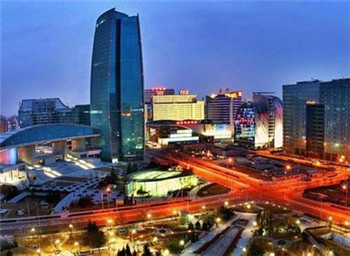
Investors need to become more discriminating when investing in start-up technology start-ups, following recent “over-enthusiasm” in Silicon Valley, according to Bill Gates.
微软(Microsoft)创始人比尔•盖茨(Bill Gates)表示,近来硅谷“过度热衷”于投资科技初创企业,投资者们在投资这类企业时应提高识别力。
The Microsoft co-founder said he would bet on valuations of so-called “unicorns” — the 150 or so private companies that have been valued at more than $1bn — falling over the next two years, but that venture capital remains an attractive long-term asset class in an era of ultra-low interest rates.
盖茨表示他打赌所谓的“独角兽”企业——约150家估值超过10亿美元的私人公司——未来两年其估值将出现下降,不过在一个超低利率时代,风险投资仍是一个有吸引力的长期资产类别。
The valuations of unicorns have come under pressure after disappointing stock market flotations by some of their number, including payments company Square and Box, a cloud storage company. CB Insights, the research group, has identified seven unicorns that are now worth less than their peak valuation. That, plus wider concerns about the global economy, has led to a sense of a Silicon Valley boom cooling.
随着部分独角兽企业上市后表现令人失望,包括支付公司Square和云存储公司Box,此类企业的估值已面临压力。研究公司CB Insights已确定有7家独角兽企业目前价值低于其最高估值。这个因素再加上对全球经济的担忧,已使人们对硅谷投资热的期待降低。
“If you gave me a basket of unicorns, I wouldn’t know right now whether to go long or short,” Mr Gates said. “I might go short in the two-year timeframe, but not in the longer timeframe because all it takes is for one or two of those to join the pantheon and your short would make you go bankrupt.”
盖茨表示:“如果你给我一篮子独角兽企业,我不知道现在该选择买进还是卖出。如果以两年为期,我可能会选择卖出,但长期来说则不会,因为里面只要有一两家企业日后飞黄腾达,卖空就会让你破产。”
He added: “Something that has a chance of 10 per cent-plus returns, even if it comes with a lot of variance, is very attractive in a period where the German long bond has a 1.2 per cent return.”
他还表示:“在这个德国长期债券回报率也仅为1.2%的时期,如果某资产的回报率有机会达到10%以上,即使伴随有大量变动,这一资产还是非常有吸引力的。”
Energy start-ups, Mr Gates said, had not enjoyed the same frothiness in valuations as IT companies, largely because of the much larger sums needed before a company can prove that the technology works.
盖茨表示,能源初创企业的估值并未出现IT企业估值一样的泡沫化,这多半是因为,能源企业需要更多资金才能证明其技术可行。











